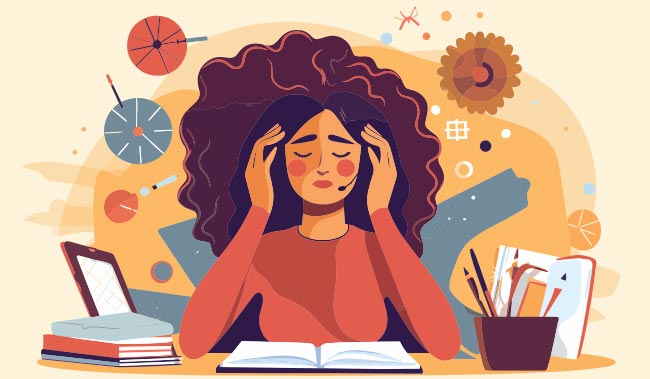26th June 2017

Customer service roles can be fast-paced, emotionally demanding, and mentally exhausting, especially when you’re expected to stay calm under pressure.
For many agents, this constant demand can trigger anxiety that affects both wellbeing and performance. The good news? There are practical, proven ways to manage it.
Here’s how to take control of anxiety before it takes control of you.
If you’re in a stressful job, it helps to understand what’s actually happening in your body when anxiety hits.
Anxiety activates your fight-or-flight response, a biological survival mechanism. It’s useful in life-or-death situations, but in modern life, this same response can be triggered by high workloads, tight deadlines, or difficult customers.
You might feel:
Knowing what’s happening physiologically gives you the power to intervene early.
Quick Tip – Practice Box Breathing
This simple technique, used by Navy SEALs and elite athletes, can help reset your nervous system in under a minute.
Inhale for 4 seconds, hold for 4, exhale for 4, hold for 4. Repeat as needed.
Stress often lives in the body before it reaches the mind. That’s where Progressive Muscle Relaxation (PMR) comes in.
PMR involves intentionally tensing and releasing different muscle groups, one at a time, from your feet to your face.
This helps
Note: You can find free guided PMR exercises on YouTube or meditation apps like Headspace or Insight Time.
Mindfulness isn’t just a buzzword, it’s one of the most effective tools for managing workplace stress. Studies have shown that just 10 minutes of mindfulness per day can lower cortisol levels (your body’s main stress hormone) and improve emotional regulation.
Proven Techniques:
Pro tip: Many companies now offer corporate wellness apps or memberships, check if your employer provides access to tools like Calm, Headspace, or Sanvello.
Sleep and anxiety have a two-way relationship: poor sleep fuels anxiety, and anxiety disrupts sleep. Customer service roles that involve irregular shifts, late hours, or back-to-back queues make this even tougher.
Sleep Hygiene Tips:
While not a replacement for medical advice, some herbal and natural remedies have shown mild effectiveness in reducing anxiety symptoms:
Note: Always consult with a healthcare professional before starting any herbal supplement, especially if you’re taking any medication.
If anxiety is starting to interfere with your work, your health, or your ability to show up fully, don’t go it alone. One of the most important steps you can take is simply talking to someone you trust, and that can start with your manager, team lead, or HR representative.
You don’t have to share everything, but giving them a heads-up that you’re struggling can help them support you more effectively.
That might mean adjusting your schedule, offering more breaks, switching tasks for a day, or simply knowing they’ve got your back when things feel overwhelming.
Then, consider talking to a professional.
If anxiety continues or becomes more severe, reaching out to a mental health professional is a powerful next step. Therapists, counsellors, and doctors can help you explore tools that go beyond coping, and actually start healing.
If you want more information on anxiety, please visit: https://www.nhs.uk/mental-health/conditions/generalised-anxiety-disorder-gad/
For more on agents mental health in the workplace, read these articles next:
Reviewed by: Rachael Trickey